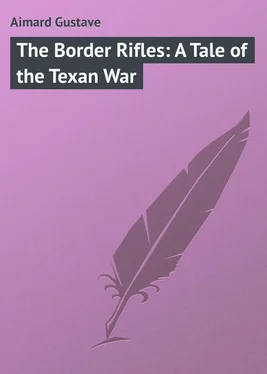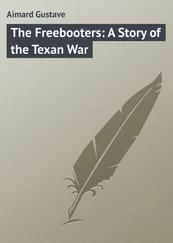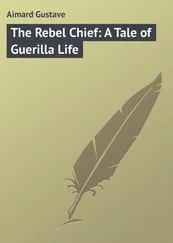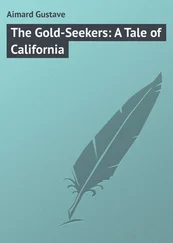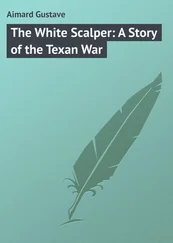Gustave Aimard - The Border Rifles - A Tale of the Texan War
Здесь есть возможность читать онлайн «Gustave Aimard - The Border Rifles - A Tale of the Texan War» — ознакомительный отрывок электронной книги совершенно бесплатно, а после прочтения отрывка купить полную версию. В некоторых случаях можно слушать аудио, скачать через торрент в формате fb2 и присутствует краткое содержание. Жанр: foreign_prose, foreign_adventure, foreign_language, на английском языке. Описание произведения, (предисловие) а так же отзывы посетителей доступны на портале библиотеки ЛибКат.
- Название:The Border Rifles: A Tale of the Texan War
- Автор:
- Жанр:
- Год:неизвестен
- ISBN:нет данных
- Рейтинг книги:5 / 5. Голосов: 1
-
Избранное:Добавить в избранное
- Отзывы:
-
Ваша оценка:
- 100
- 1
- 2
- 3
- 4
- 5
The Border Rifles: A Tale of the Texan War: краткое содержание, описание и аннотация
Предлагаем к чтению аннотацию, описание, краткое содержание или предисловие (зависит от того, что написал сам автор книги «The Border Rifles: A Tale of the Texan War»). Если вы не нашли необходимую информацию о книге — напишите в комментариях, мы постараемся отыскать её.
The Border Rifles: A Tale of the Texan War — читать онлайн ознакомительный отрывок
Ниже представлен текст книги, разбитый по страницам. Система сохранения места последней прочитанной страницы, позволяет с удобством читать онлайн бесплатно книгу «The Border Rifles: A Tale of the Texan War», без необходимости каждый раз заново искать на чём Вы остановились. Поставьте закладку, и сможете в любой момент перейти на страницу, на которой закончили чтение.
Интервал:
Закладка:
"That is," the Canadian answered, seriously, "because you have to-day followed the impulses of your heart."
The Canadian then quitted the platform to go and fetch the skins. A moment after, he returned with two magnificent jaguar hides, perfectly intact, which he handed to the dealer. The latter, as was arranged, then delivered the weapons to him; but a scruple suddenly assailed the hunter.
"One moment," he said; "if you give me these weapons, how will you manage to return to town?"
"That need not trouble you," John Davis replied; "I left my horse and people scarce three leagues from here. Besides, we have our pistols, which we could use if necessary."
"That is true," the Canadian remarked, "you have therefore nothing to fear; still, as your wound will not allow you to go so far a-foot, I will help your servants to prepare you a litter."
And with that skill, of which he had already supplied so many proofs, the Canadian manufactured, with branches of trees he cut down with his hatchet, a litter, on which the two tiger skins were laid.
"And now," he said, "good bye; perhaps we shall never meet again. We part, I trust, on better terms than we came together: remember, there is no trade, however shameful, which an honest man cannot carry on honourably; when your heart inspires you to do a good action, do not be deaf to it, but do it without regret, for God will have spoken to you."
"Thanks," the dealer said, with considerable emotion, "but grant me one word before we part."
"Say on."
"Tell me your name, so that if any day accident brought us together again, I might appeal to your recollections, as you could to mine."
"That is true, my name is Tranquil; the wood-rangers, my companions, have surnamed me the Panther killer."
And, ere the slave dealer had recovered from the astonishment caused by this sudden revelation of the name of a man whose renown was universal on the border, the hunter, after giving him a parting wave of the hand, bounded from the platform, unfastened his canoe, and paddled vigorously to the other bank.
"Tranquil, the Panther-killer," John Davis muttered when he was alone; "it was truly my good genius which inspired me to make a friend of that man."
He lay down on the litter which two of his men raised, and after giving a parting glance at the Canadian, who at this moment was landing on the opposite bank, he said: —
"Forward!"
The platform was soon deserted again, the dealer and his men had disappeared under the covert, and nothing was audible but the gradually departing growls of the bloodhounds, as they ran on ahead of the little party.
CHAPTER III
BLACK AND WHITE
In the meanwhile, as we have said, the Canadian hunter, whose name we at length know, had reached the bank of the river where he left the Negro concealed in the shrubs.
During the long absence of his defender, the slave could easily have fled, and that with the more reason, because he had almost the certainty of not being pursued before a lapse of time, which would have given him a considerable start on those who were so obstinately bent on capturing him.
He had not done so, however, either because the idea of flight did not appear to him realizable, or because he was too wearied, he had not stirred from the spot where he sought a refuge at the first moment, and had remained with his eyes obstinately fixed on the platform, following with anxious glance the movements of the persons collected on it.
John Davis had not at all flattered him in the portrait he had drawn of him to the hunter. Quoniam was really one of the most magnificent specimens of the African race: twenty-two years of age at the most, he was tall, well-proportioned and powerfully built; he had wide shoulders, powerfully developed chest, and well-hung limbs; it was plain that he combined unequalled strength with far from ordinary speed and lightness; his features were fine and expressive, his countenance breathed frankness, his widely opened eyes were intelligent – in short, although his skin was of the deepest black, and unfortunately, in America, the land of liberty, that colour is an indelible stigma of servitude, this man did not seem at all to have been created for slavery, for everything about him aspired to liberty and that free-will which God has given to his creatures, and men have tried in vain to tear from them.
When the Canadian re-entered the canoe, and the American quitted the platform, a sigh of satisfaction expanded the Negro's chest, for, without knowing positively what had passed between the hunter and his old master, as he was too far off to hear what was said, he understood that, temporarily at least, he had nothing to fear from the latter, and he awaited with feverish impatience the return of his generous defender, that he might learn from him what he had henceforth to hope or fear.
So soon as he reached land, the Canadian pulled his canoe on to the sand, and walked with a firm and deliberate step toward the spot where he expected to find the Negro.
He soon noticed him in a sitting posture, almost at the same spot where he had left him.
The hunter could not repress a smile of satisfaction.
"Ah, ah," he said to him, "there you are, then, friend Quoniam."
"Yes, master. Did John Davis tell you my name?"
"As you see; but what are you doing there? Why did you not escape during my absence?"
"Quoniam is no coward," he replied, "to escape while another is risking his life for him. I was waiting ready to surrender myself if the white hunter's life had been threatened." 1 1 Nothing appears to us so ridiculous as that conventional jargon Which is placed in the mouth of Negroes; a jargon which, in the first place, impedes the story, and is moreover false; a double reason which urges us not to employ it here – all the worse for the local colouring. – G.A.
This was said with a simplicity full of grandeur, proving that such was really the Negro's intention.
"Good!" the hunter replied, kindly, "I thank you, for your intention was good; fortunately, your interference was unneeded; but, at any rate, you acted more wisely by remaining here."
"Whatever may happen to me, master, be assured that I shall feel ever grateful to you."
"All the better for you, Quoniam, for that will prove to me that you are not ungrateful, which is one of the worst vices humanity is afflicted by; but be good enough not to call me master again, for it grieves me; the word implies a degrading inferiority, and besides, I am not your master, but merely your companion."
"What other name can a poor slave give you?"
"My own, hang it. Call me Tranquil, as I call you Quoniam. Tranquil is not a difficult name to remember, I should think."
"Oh, not at all," the Negro said with a laugh.
"Good! That is settled, then; now, let us go to something else, and, in the first place, take this."
The hunter drew a paper from his belt, which he handed to the Black.
"What is this?" the latter asked with a timid glance, for his ignorance prevented him deciphering it.
"That?" the hunter said with a smile; "it is a precious talisman, which makes of you a man like all the rest of us, and removes you from the animals among which you have been counted up to this day; in a word, it is a deed by which John Davis, native of South Carolina, slave dealer, from this day restores to Quoniam his full and entire liberty, to enjoy it as he thinks proper – or, if you prefer it, it is your deed of liberation written by your former master, and signed by competent witnesses, who will stand by you if necessary."
On hearing these words the Negro turned pale after the fashion of men of his colour; that is to say, his face assumed a tinge of dirty gray, his eyes were unnaturally dilated, and for a few seconds he remained motionless, crushed, incapable of uttering a word or making a movement.
Читать дальшеИнтервал:
Закладка:
Похожие книги на «The Border Rifles: A Tale of the Texan War»
Представляем Вашему вниманию похожие книги на «The Border Rifles: A Tale of the Texan War» списком для выбора. Мы отобрали схожую по названию и смыслу литературу в надежде предоставить читателям больше вариантов отыскать новые, интересные, ещё непрочитанные произведения.
Обсуждение, отзывы о книге «The Border Rifles: A Tale of the Texan War» и просто собственные мнения читателей. Оставьте ваши комментарии, напишите, что Вы думаете о произведении, его смысле или главных героях. Укажите что конкретно понравилось, а что нет, и почему Вы так считаете.
